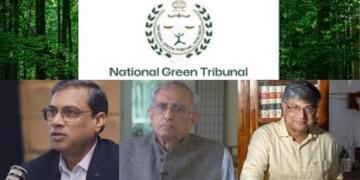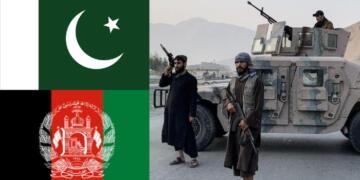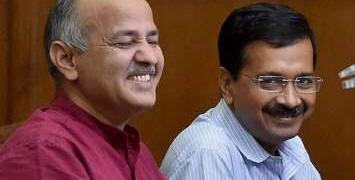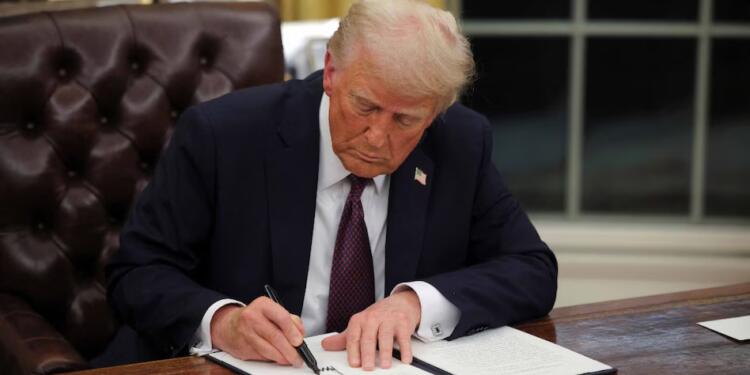For the third consecutive day, U.S. President Donald Trump has reiterated the startling revelation regarding USAID’s allocation of $21 million to India for electoral influence. He also cl1arified that $29 million was allocated to Bangladesh to strengthen its political landscape, digging up the grave of the Islamo-Leftist argument who tried tooth and nail to muddle up the issue into a mere misunderstanding. This statement by Donald Trump crumbled down the flawed assertions made by the Islamo-Leftist ecosystem who aimed at dismissing Trump’s revelations for vested political interests. The ecosystem tried to undermine the foreign interference by suggesting that Trump had confused the funding allocated to Bangladesh with that of India. However, their arguments fail to stand up to scrutiny.Soon after Trump revealed the shocking fact on 16th of February that of USAID allocating $21 million to influence Indian Elections, the Islamo-Leftist ecosystem sprang into action, with journalists such as Rajdeep Sardesai and Suhasini Haidar, along with publications like The Indian Express, leading the charge in dismissing his claim.
They attempted to push the narrative that Trump had simply misunderstood the distribution of USAID funds, insisting that the $21 million in question was actually intended for Bangladesh, not India. However, this argument is deeply flawed.
Just because $21 million was allocated to Bangladesh does not preclude the possibility of similar or even greater funding being directed toward India. USAID has a well-documented history of distributing funds for “democratic strengthening” initiatives across multiple nations simultaneously. It works closely with organizations such as the International Foundation for Electoral Systems (IFES), the National Democratic Institute (NDI), and the International Republican Institute (IRI), which have been known to shape electoral processes worldwide. The Leftist media conveniently ignored the possibility that electoral influence operations in India could have been funded through alternative programs, grants, or indirect means.
The attempt to whitewash this issue becomes even more suspect when examining USAID’s longstanding connections with India’s electoral institutions. In 2012, under the leadership of S.Y. Quraishi, the Election Commission of India (ECI) signed a Memorandum of Understanding (MoU) with IFES, allowing foreign advisory bodies to work closely with Indian electoral processes. While the MoU itself may not have involved direct funding, IFES an organization that receives financial support from USAID and George Soros’s Open Society Foundations—has played a role in shaping electoral discourse in India.
Furthermore, past records indicate that USAID funds directed toward India’s electoral processes were once accessible via the Consortium for Elections and Political Process Strengthening (CEPPS). However, these records have since vanished after the controversy emerged, raising further suspicions. Despite this, The Indian Express and cabal’s favourites failed to address this crucial omission.
The Indian Express and Its Conflict of Interest
Adding to the credibility crisis is the financial entanglement of The Indian Express with organizations linked to USAID. Omidyar Network, which has ties to USAID, has sponsored several programs hosted by The Indian Express, including events in Chennai in August 2024 and Delhi in January 2025. This is despite Omidyar India’s website stating that it ceased operations in India effective December 31, 2024. Notably, Omidyar is a part of USAID’s Finance and Investment Network and has received funding from George Soros’s Open Society Foundation.
Despite these clear conflicts of interest, The Indian Express failed to disclose its financial ties while attempting to refute Trump’s claims, making its coverage highly suspect. Further, the author of its misleading report, Jay Mazoomdar, is a member of the International Consortium of Investigative Journalists (ICIJ), which partners with the Organized Crime and Corruption Reporting Project (OCCRP) another entity funded by USAID and George Soros. Given this background, it is hardly surprising that The Indian Express sought to downplay the extent of foreign influence in India’s elections.
The Larger Concern: Foreign Influence in India’s Political Discourse
While The Indian Express and the Leftist ecosystem focused solely on refuting Trump’s specific $21 million claim, they conveniently ignored the broader issue foreign influence in India’s electoral system. USAID-backed organizations have consistently engaged in shaping political narratives within India. For instance, IFES, a USAID-funded entity, published a white paper on Dalit representation in Indian elections, using rhetoric that closely mirrors that of Congress leader Rahul Gandhi. This raises valid concerns about the alignment of foreign-funded NGOs with specific ideological factions in India.
Moreover, there is a conspicuous silence on why records of USAID-funded electoral projects in India have been taken down. If there were nothing to hide, why remove this information? The Leftist media’s failure to address these concerns highlights its selective reporting and deliberate attempt to shield the truth.
The Islamo-Leftist ecosystem’s desperate attempt to undermine Trump’s claim about USAID funding for Indian elections reveals an alarming bias. Their flawed argument that Trump “misunderstood” the funds allocated to Bangladesh stands exposed.
By refusing to investigate the extent of foreign influence, failing to disclose financial conflicts of interest, and selectively ignoring crucial evidence, The Indian Express and the favourites of the ecosystem have raised serious questions about their credibility.

























